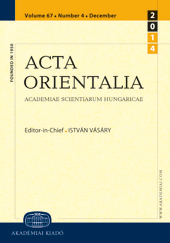Central Romani lidža-/ ledž-: A vestige of an Indo-Aryan compound verb and its cross-dialectal variability
Central Romani lidža-/ ledž-: A vestige of an Indo-Aryan compound verb and its cross-dialectal variability
Author(s): Michael BenišekSubject(s): Theoretical Linguistics, Phonetics / Phonology, Morphology, Philology
Published by: Akadémiai Kiadó
Keywords: absolutive participle; Central Romani; compound verb; dialectology; Indo-Aryan; univerbation;
Summary/Abstract: Compound verbs, typical of the Indo-Aryan languages of India, are absent from Romani. Still, there are vestiges of such verbs in current Romani dialects, as is the case of the verb lidža-/ ledž- ‘to take away’ in Central Romani, the language traditionally spoken by Roms in Central-Eastern Europe. This paper first outlines the variability of the verb and its properties in a cross-dialectal perspective. Then it argues that the verb reflects the univerbation of a compound verb involving a participle of ‘to take’ and a verb ‘to go’, pointing to a phrase common in the languages of India.
Journal: Acta Orientalia Academiae Scientiarum Hungaricae
- Issue Year: 66/2013
- Issue No: 4
- Page Range: 471-486
- Page Count: 16
- Language: English
- Content File-PDF

